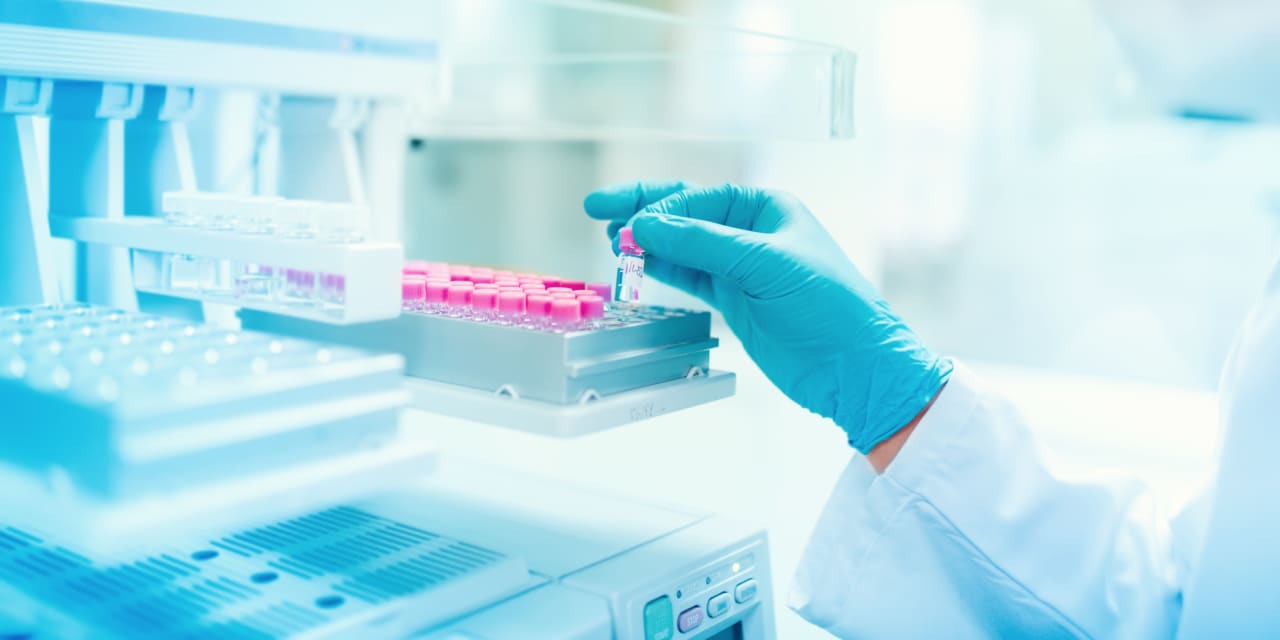Biotech M&A is back in a big way—and biotech stocks are benefiting from it.
The industry had a tough year. The equal-weighted
SPDR S&P Biotech ETF,
which trades under the ticker symbol XBI, has gained 5.6% so far this year, while the market capitalization-weighted
iShares Biotechnology ETF,
which trades as IBB, has risen 1.9%. Both are well behind the
S&P 500’s
24% rise.
And both look much better now than they did less than two months ago. Through the end of October, IBB had dropped 13%, while XBI had tumbled 20%. Since then, they’ve both rallied, with IBB up 18% through Friday’s close, and XBI up 32%.
That makes sense. Many biotech stocks, particularly small ones, are reliant on borrowed capital to conduct research as they look for the next big blockbuster drug. So when the Federal Reserve is raising interest rates, that money gets more expensive, and unprofitable biotech stocks get crushed. It’s not a coincidence that the turnaround in the sector has come just as conditions began to turn right for the Fed to consider rate cuts instead of hikes.
But there’s another factor in play as well—the return of biotech M&A. On Tuesday,
Bristol Myers
agreed to acquire
RayzeBio
in a deal valued at $4.1 billion, while
AstraZeneca
said it would buy Gracell in a deal valued at $1.2 billion. These are just the latest acquisitions: Nine of the 20 biotech acquisitions worth $1 billion or more announced so far this year have come since the start of October, according to the website BioPharma Dive.
And more gains could be on their way, according to Fairlead Strategies’ Katie Stockton. She notes that XBI has broken out above resistance, and is poised for more upside after moving higher off a “flag pattern” on Friday. The ETF relative to the S&P 500 has risen above its 200-day moving average, “supporting a bigger reversal for biotech stocks in the months ahead,” Stockton writes.
As long as the Fed continues to cooperate.
Write to Ben Levisohn at [email protected]
Read the full article here




